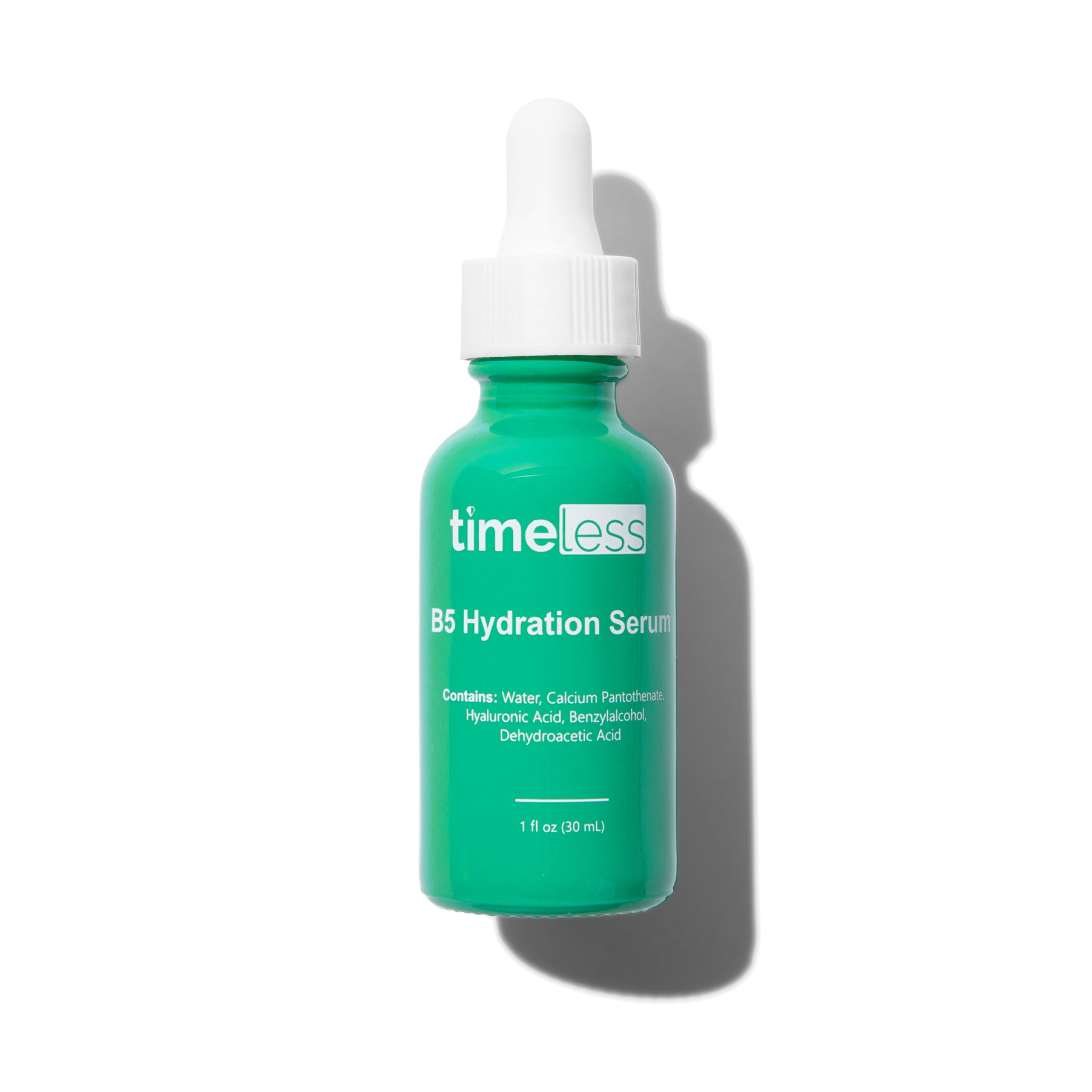From Pat McGrath heralded as the most influential makeup artist of all time, to the recent appointment of British Vogue’s first Black editor-in-chief, Edward Enninful, real change for black representation and equality in the beauty industry is hopefully afoot.
In support of Black History Month, we’ve turned to our resident Timeless Skin Care expert, Shelly Leggins to help demystify common concerns regarding skin care for dark complexions.
Dark Skin Beauty - What You Need to Know
Skin tones are produced by melanin within the skin cells called melanocytes. On the Fitzpatrick scale, which is used to numerically measure skin tones, brown skin ranges from Type III - VI.
- Type III is described as average skin color that tans and sometimes mildly burns.
- Type IV is light-brown skin that rarely burns and tans easily.
- Type V is brown skin that never burns and tans very easily.
- Type VI is black skin that is heavily pigmented, never burns and tans very easily.
Darker skin tones usually boast firmer and smoother skin. This “agelessness” is primarily thanks to more melanin (dark pigment) that determines sun sensitivity. More melanin or dark pigment provides more protection from photoaging and skin damage which can accelerate skin aging (think wrinkles, fine lines, sunspots, cancer) from too much sun exposure.
Skin Care Tips for Brown Skin
Shelly adds, “Melanin-rich skin tones require active yet modified application of ingredients to help regulate oil production, even out skin tone and protect the skin from environmental stressors.”
Studies on ethnic skin variations have shown that African-American skin has the highest sebum content, compared to other ethnicities. One of the best ingredients for black skin is Vitamin B5, helping to combat acne, minimize scarring and promote skin healing. The anti-inflammatory properties of Vitamin B5, paired with 1% Hyaluronic Acid in a lightweight serum help maintain the skin’s moisture barrier without clogging pores.
What Causes Dark Spots?
Melanin-enriched skin is more likely to be prone to dark spots, known as hyperpigmentation, which occurs when the skin over-produces melanin. UV rays from the sun triggers excess pigment production that can darken previously inflamed areas of the skin (think blemishes, scar tissue or skin disorders such as psoriasis). Although less prone to burning, darker skin tones should take care to protect not just against UVA and UVB rays but also the effects of hyperpigmentation on black skin.
Hyperpigmentation Treatment Suggestions
While there is no silver bullet dark spot corrector, it is possible to reduce dark spots and even out skin tone with serums that contain Ascorbic Acid. One of the best skin lighteners for black skin is 20% Vitamin C + E Ferulic Acid serum. It helps to minimize discoloration, while brightening a dull complexion and protecting against environmental stressors.
Pair with Coenzyme Q10 serum to further boost antioxidant protection on a cellular level while energizing the synthesis of collagen and elastin production. Incorporate the Dark Circle Eye Cream into your skin care for dark circles around the eyes. This cream contains Haloxyl™ which absorbs blood pigments responsible for the dark shadows under the eye area and also helps to strengthen capillaries for improved appearance.
To maintain beautiful skin tone and texture try this skin care routine for dark skin:
- On clean skin, apply Vitamin C+ E Ferulic Acid Serum. Allow to absorb completely into the skin.
- Follow with Vitamin B5 Serum to treat large pores and calm red, irritated skin.
- Apply a thin layer of Coenzyme Q10 Serum for brightening effects while regulating and maintaining skin’s moisture barrier.
- Apply Dark Circle Eye Cream daily, AM and PM for best results
- Finish with your choice of SPF Moisturizer to protect your skin from the damaging effects of the sun’s rays and pollution.
Note: To modify this regime for more oily and/or sensitive skin types, use Hyaluronic Acid + Vitamin C Serum instead of 20% Vitamin C + E Ferulic Acid Serum in the first step.
Timeless Skin Care products are formulated to work across all skin types, conditions and colors. These specific products can help address hyperpigmentation, inflammation and skin irritations.
Black beauty editors, corporate beauty leaders, decision-makers, influencers (and so on!) help shape the beauty narrative, promoting dialogue on skin care for brown skin tones and reflecting the enormity of African-American buying power.
For example, according to Essence magazine, African-American spending is projected to rise to $1.5 trillion by 2021. In addition, a recent Nielsen Report in the US found that black women spend nearly nine times more than white women on hair and beauty.
While Black History Month is about celebrating African-Americans’ contributions and achievements past, present and future, we’d like to especially thank black and gorgeous beauty aficionados everywhere!!


















